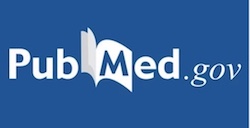Introduction to Qigong for Cancer
A Phenomenological Qualitative Exploration of Mind-Body Therapy Use and Effectiveness Among Young, Middle, and Older Adult Cancer Survivors. Tai Chi and Qigong had beneficial physical and mental health effects on survivors of all age groups. PMID: 38767143.
Management of Fatigue in Adult Survivors of Cancer: ASCO-Society for Integrative Oncology Guideline Update. The American Society of Clinical Oncology reports that Tai Chi and Qigong showed benefits during treatment and clinicians should recommend Tai Chi or Qigong. PMID: 38754041.
Tai Chi, Qigong and the Treatment of Cancer. This paper reports on or summarizes dozens of studies where Tai Chi and/or Qigong have been used to reduce or alleviate the adverse side-effects that result from surgery, chemotherapy, and other treatments for cancer. A Qigong or Tai Chi regimen can often reduce fatigue, insomnia, dyspnea, numbness, heartburn, dizziness, psychological distress, cognitive impairment, heart rate variability, recovery time, nausea, pain, discomfort, anxiety and depression, and can increase bone density, self-efficacy, muscular strength, immune function, longevity, ambulatory stability, joint flexibility, and the overall quality of life. McGee 2021. Read article.
Qigong and the Treatment and Prevention of Cancer: A Bibliography. This bibliography provides the citations to 30 years of medical studies that have been conducted on the use of qigong to treat and prevent cancer. Read article.
Current Usage of Traditional Chinese Medicine for Breast Cancer—A Narrative Approach to the Experiences of Women with Breast Cancer in Australia—A Pilot Study. PMC5590056.
Impact of Medical Qigong on quality of life, fatigue, mood and inflammation in cancer patients: a randomized controlled trial. PMC2826100
A Review of Qigong Therapy for Cancer Treatment provides an overview of research results on Qigong for cancer. Studies on Qigong and its ffect on cancer have demonstrated consistent results for its inhibitory effect on cancer growth and metastasis.
The textbook Chinese Medical Qigong Chinese Medical Qigong (in English) has information on Qigong for cancer treatment.
Chinese Medical Qigong (in English) has information on Qigong for cancer treatment.
Effect of medical Qigong on cognitive function, quality of life, and a biomarker of inflammation in cancer patients: a randomized controlled trial. PMID: 21688163
Mind-Body Practices in Cancer Care. PMC442855. Minimizing stress improves health and quality of life outcomes.




 Devatara Holman, MS, MA, LAc
Devatara Holman, MS, MA, LAc 